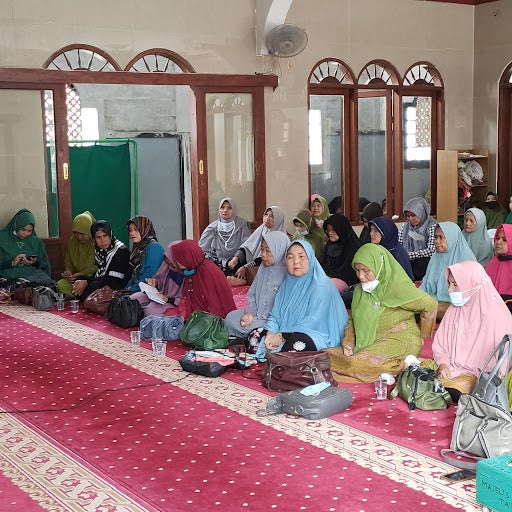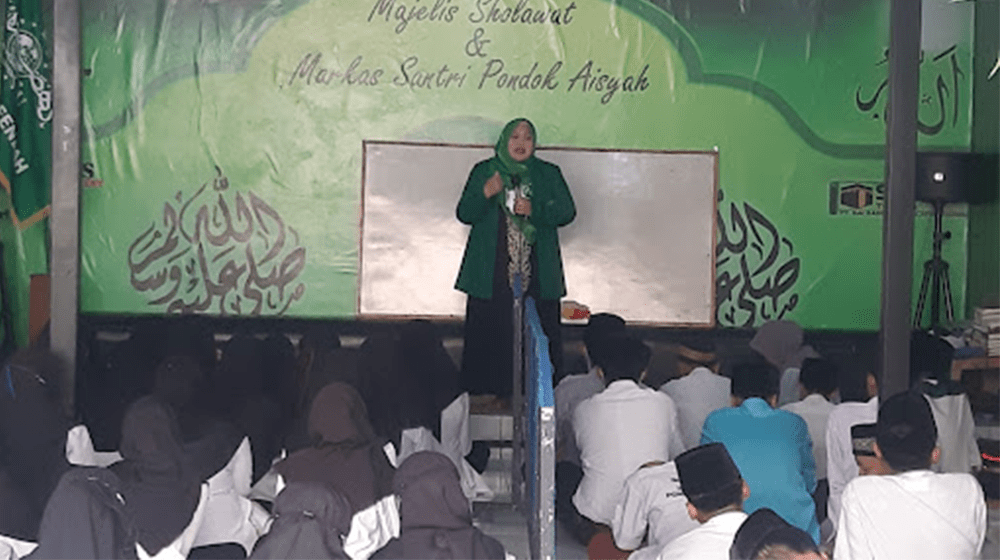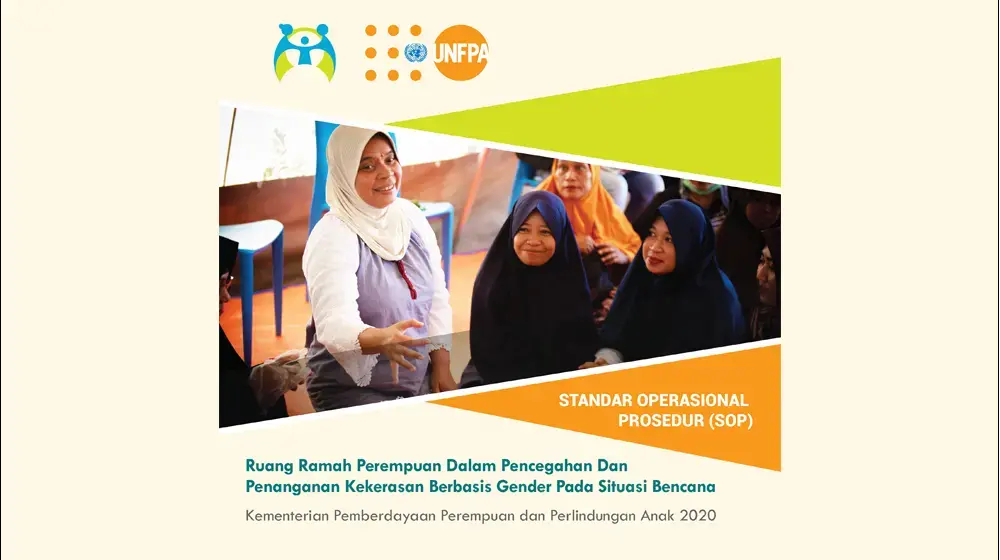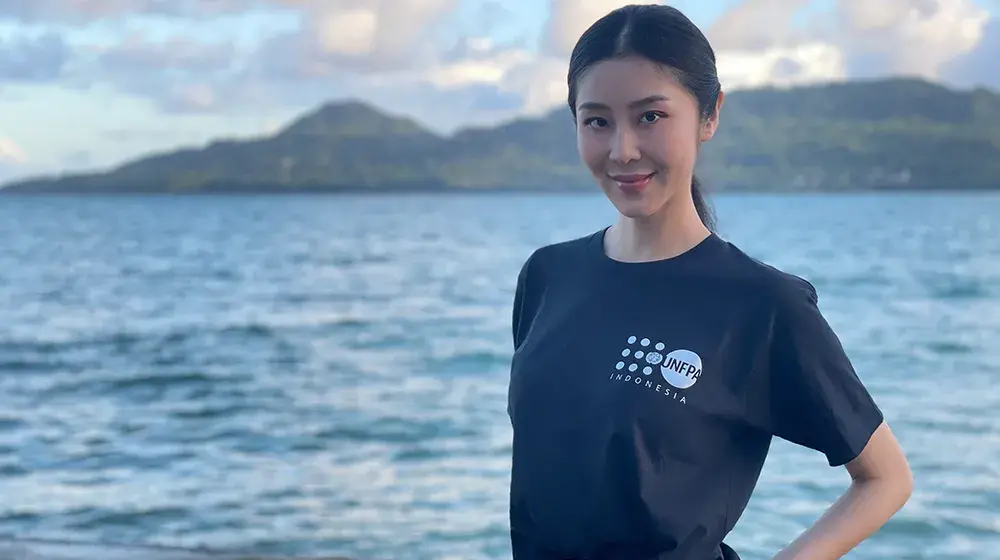Dai’yah, female Muslim leaders, are key figures in religious education in communities in Indonesia. The scope of their role and impact of their work expands beyond religious teaching, however.
Da’iyah are also champions of sexual and reproductive health and family planning. They are a primary source for guidance and advice for Muslim women and girls. They become trusted pre-marriage counsellors for couples planning to wed, and trusted teachers in primary and secondary education. And most importantly, they become the voice that offers hope for those who seek solace amid challenges in life.
“I want to fight for the rights of women and children, especially in reproductive health and education for women, to make gender equality a reality in the family and the society,” Nia Qolbunia, a 45-year-old teacher at madrasah tsanawiyah (religious junior high school run by the Ministry of Religious Affairs) and the third deputy of Fatayat NU West Java, describes her motivation working as a dai’yah.
Socializing the importance of family planning and marrying at the appropriate age, 21 years minimum for women to ensure their reproductive health is part of her daily activity. “We also provide contraceptive services in collaboration with the government so that women can manage their economy, help with their family’s prosperity, and do their activities,” she continues.

A Quran study meeting known as “pengajian”, 23 October 2021
(Photo: Courtesy of Fatayat NU)
Dai’yah’s championship of sexual and reproductive health to women and girls is more critical than ever. The prolonged COVID-19 pandemic and its disruptive impact on essential and lifesaving services has taken a heavy toll on women and girls. Many of them face barriers in accessing sexual and reproductive health, maternal and child health, and family planning services due to limited services and restrictions of movement. Consequently, they face higher risks of gender-based violence (GBV), unintended pregnancies, and harmful practices like female genital mutilation (FGM) and child marriage.
Nia has seen how the COVID-19 pandemic has impacted the community she serves. “Because of the COVID-19 pandemic, a lot of husbands stay at or work from home. As a result, there have been a lot of unplanned pregnancies,” Nia says. “Many parents have also married off their teenage children… There is online gender based violence and domestic violence too,” she continues.
Therefore, da’iyah are among UNFPA Indonesia’s critical partners in achieving the Three Zeros (Three Transformative Results), an agreement that followed the global commitment made at the 1994 International Conference on Population and Development (ICPD), that seeks to end preventable maternal deaths, unmet need for family planning, and gender-based violence and harmful practices against women and girls. Making the Three Zeros a reality will also support the achievement of the Sustainable Development Goals (SDGs) by 2030, ensuring that no one is left behind.
UNFPA Indonesia has worked with Fatayat NU, a Muslim women’s organizations under Nahdlatul Ulama (NU)—one of two largest Muslim mass organizations in Indonesia alongside Muhammadiyah—as one of the implementing partners of the “Leaving No One Behind (LNOB)” project supported by the Government of Japan. The partnership focuses on improving the capacity of da’iyah’s in promoting the sexual and reproductive health and wellbeing of women and girls during the pandemic.
“As Fatayat NU’s members are women of productive age, 25-45 years, educating them and ensuring they are all on the same page is critical,” Izza Anafisah, Fatayat NU’s Programme Manager, explains. “Especially with the high number of child marriage and female genital mutilation (FGM) cases we find,” the 35-year-old woman continues.
Through the LNOB project that runs from June 2021 to March 2022, da’iyah and peer educators from NU Female Students Association (IPPNU) participate in training workshops on spreading messages on women’s sexual and reproductive health and prevention of GBV and child marriage to 5,500 women through Qur’an study meetings known as “pengajian” and 1,650 adolescent girls through orientations in Islamic boarding schools in West Java, Central Sulawesi, and DI Yogyakarta.

A “pengajian” meeting and socialization on reproductive health and family planning, 9 October 2021
(Photo: Courtesy of Fatayat NU)
“We are grateful to have gained initial capacity building that opened our eyes on things considered indecent or a taboo to discuss, such as the functions of a vagina and how to take care of it. It’s important to teach them to students at the local level,” Nur Wedia Devi Rahmawati, Chairperson of the Female Student Counseling Institution of the Central Board of NU Female Students (PP IPPNU) Jakarta, says. Peer counselors play a critical role to help adolescents in navigating the dynamic changes in their lives, according to the 27-year-old woman. “We are planning to establish a school for peer counselors by the end of the year so that more girls can become leaders,” she adds.
As part of the LNOB project, guidelines are also developed to help da’iyah and peer educators incorporate the key messages into their teaching and counseling materials. “We are hoping that with the guidelines we can little by little counter the tradition and belief that endorse FGM,” says Izza. “ Islam regulates these issues… There’s an impression that there’s a distinction between reproductive health and religion when there is none,” she affirms.
For Nia, the training and the guidelines would help her achieve her goal of realizing gender equality. “We are gaining a lot of knowledge on relevant laws, reproductive health, FGM, and child marriage, which we will disseminate to the congregation,” she says. She also highlights the critical need for cross-sectoral collaboration and networking on this important work. “We don’t work on our own. We network with relevant offices, the child protection commission and many others,” she says, firmly.
Megumi Uchino, Humanitarian Programme Analyst
Rahmi Dian Agustino, Communications Analyst
Ria Ulina, Sexual and Reproductive Health in Emergency Officer
UNFPA Indonesia




